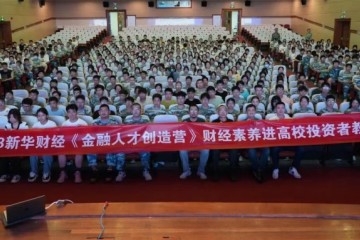【文/观察者网专栏作者 罗思义】
8月5日(周一),人民币兑美元汇率跌破7。除了下跌本身,它还跌破7重要心理关口。金融市场对此迅速做出反应——美国标准普尔500指数单日下跌3%,创2019年以来最大单日跌幅。

外媒标题:贸易恐慌席卷市场,美股遭2019年来最大跌幅
继2015年人民币贬值导致美股大幅下跌之后,美股再次上演了同样的戏码。拙文《与特朗普的经济持久战,中国最具有杀伤力的武器是什么?》对中国政策对美国金融市场的影响,进行了详细的分析,但2015年人民币贬值的影响很容易概括。彭博社高级编辑和英国《金融时报》前首席评论员约翰·奥瑟斯(John Authers)指出:“过去五年,最令美国市场恐惧的事件是中国人民币在2015年突然贬值。”
人民币贬值的影响是显而易见的。从2015年8月10日至8月24日的仅仅14天间,人民币汇率下跌3.0%。8月25日,美国标准普尔500指数随之下跌11.2%。根据当前美国股市市值衡量,这相当于美股损失3.8万亿美元。
2015年8月5日之后,在人民币汇率波动的直接影响下,美国股市继续震荡,甚至出现了波动的潜在威胁。8月6日,人民币兑美元汇率小幅上涨,美国股市也随之上涨 1.3%,弥补了8月5日的部分的损失。

随后,8月7日,人民币兑美元汇率小幅下调,美股期货市场立即下跌。彭博社指出:“美国股指期货,因为中国央行将人民币汇率中间价下调至略低于预期的水平……随着人民币走弱,9月份标准普尔500指数期货合约跌幅高达0.5%。”
尽管当天人民币兑美元汇率下跌幅度很小,但美股当天晚些时候反弹,最终收于持平,正如一位评论员发推特指出:“周二晚:人民币兑美元汇率仅下跌0.4%……周三上午美股期货大幅下跌。这种关联令人吃惊!”

彭博社报道:贸易紧张重现,中国央行将人民币汇率微调低至预期以下后,美股指数预期向跌
这也印证了我之前在观察者网上发表的文章《特朗普的经济持久战,中国最具有杀伤力的武器是什么?》中的分析。
如果说贸易战中的中小型武器是关税——它所造成的后果是显著的,但还不至于是毁灭性打击——那么硬核武器就是对美国金融市场的打击,因为美股总市值约为30万亿美元,美国债券市场市值约为40万亿美元。事实证明,人民币汇率波动是针对这个市场的核武器。
正如下文分析所示,这次的汇率波动甚至不是直接为了攻击美国,而只是简单地适应国际环境,这一切就已经发生——也就是说,“金融核武器”如同真正的核武器那样,当它们只是进行试验,并且不用于直接攻击时,也可以强烈地影响战争和地缘政治的走向。
那么,我们由此可以得出什么结论呢?
使用“金融核武器”
中国政策对美国金融市场的影响证明,人民币汇率,而非稀土或关税,是中国在贸易战中最具有杀伤力的武器。但与真正的核武器一样,人民币贬值也会产生副作用——它们会引发通货膨胀、资本外逃、也会影响其他贸易伙伴等等。因此,笔者在《 与特朗普的经济持久战,中国最具有杀伤力的武器是什么?》中就美国金融市场的分析强调:“上述数据并非是向中国建议任何具体的行动方案。”
笔者深知,与美国进行贸易谈判和制作经济政策时,中国必须考虑诸多因素。一些关键信息只有参与谈判的人才知道。此外,中国不仅必须考虑到制定的政策对中国国内的影响,而且还要考虑到它们对美国的影响。但这些数据表明,中国采取的行动对美国金融市场的影响极为深远,因此特朗普政府对此非常敏感。”
虽然,8月5日发生的事情,并非中国央行为抵消人民币汇率的下行压力,就特朗普声明对华3000亿美元产品加征10%关税做出的反制措施。但是,中国又有什么必要动用它的金融手段来保护美国免受他们的特朗普总统的那个声明所导致的不良影响呢?结果,中国没有采取任何针对美国的特别行动,美国金融市场就因为他们自己的行为而损失惨重——中国所作的,只是在特朗普宣布对华产品加征10%关税后,拒绝了补贴美国。这是我把8月5日发生的事比作一场金融核武器试验,而不是在战争中实际使用核武器的原因。

但是每个人都知道核武器的威力如此之大,以至于即使在战争中不使用核武器,也会影响地缘政治形势——这就是为什么它们是一种“威慑力量”。正如2015年看到的效果一样,中国在8月5日对其金融核武器的试验,美国金融市场和分析师们迅速就感知到了。至于美国总统特朗普有没有感受到,下文将对此进行分析。
来自西方金融分析师的嘲讽
对人民币贬值感受最深的是美国市场,但分析师们也清楚地了解这一点。他们也立刻就明白了,特朗普政府对此唯一的应对措施——将中国列为货币操纵国——是极其苍白无力的。《金融时报》题为《特朗普对付中国的新招数没有杀伤力》(Donald Trump sets a toothless dog loose on China)的文章指出:
“他们终于这么做了。经过数十年的猜测与辩论,美国财政部周一傍晚将中国列为‘汇率操纵国’……
从逻辑上讲,现在将中国列为‘汇率操纵国’令人费解。这一举措的实用价值为零、甚至为负,只会凸显出美国无力强迫中国顺应其想法行事。不过,除此之外,这是个不错的主意……
为什么?因为尽管存在错误的说法……这么做除了让美国可以启动双边谈判或由国际货币基金组织(IMF)主持的谈判外,没有任何实际效果。这种磋商本身就不会取得任何成果……
你可以认为IMF懦弱,也可以将此视为学术上的诚实……
美国财政部周一在解释此举时列出的理由,仿佛在说中国应该进行更多的干预,而不是减少干预。换言之,现在‘操纵’的意思成了中国未能将汇率维持在时任美国财长认为合适的水平。
将中国列为‘汇率操纵国’从来就没多少实际意义,在目前的情况下,就更是毫无意义了。”

《金融时报》文章原标题:“特朗普朝中国放了一条没有牙齿的狗”
除了金融专家的评论外,《中国主题通讯》(the newsletter Sinocism)也清楚地表达了这一点:
“当美国宣布将中国列为‘汇率操纵国’时,人民币依然下跌。但美国这一举动已经晚了数年,也不符合当前形势,而且看起来很虚弱和孤注一掷。”
(需要说明的是,对于西方的中国问题专家,虽然这家媒体立场不在中国这边,但也不失为最佳的事实资料来源)
特朗普整明白了吗?
8月5日中国人民币贬值/金融核武器试验这一举动适时且正确。如果中国发动一场全面的战争,即人民币大规模且持续贬值,那么即便特朗普政府孤注一掷地进行反击,也将对美国金融市场产生重大影响。中国也可能遭受这样大规模行动(资本外逃、通货膨胀等)带来的不良影响,以及全面战争的后果和人员伤亡。如果可能,应避免此类战争。但如果中国不就特朗普对华产品加征10%关税做出强硬应对,那么就会被特朗普视为软弱可欺,进而变本加厉对付中国。中国进行金融核武器试验的举动,相当于在警告特朗普。
特朗普现在面临两难境地。《华尔街日报》就特朗普对华产品加征10%关税的决定发表的极为有见地的题为《特朗普否决了顾问的建议,执意对中国商品加征关税》的文章指出:
“在经过一场激烈的争论后,特朗普总统否决了顾问的建议,执意对中国商品加征关税……知情人士称,除了对华鹰派纳瓦罗之外,所有人都坚决反对加征关税。”
因此,特朗普接受纳瓦罗的建议,已使美国股票投资者损失数千亿美元。而对特朗普个人来说,更重要的是加征关税对经济的影响,将降低他连任的机会。简而言之,对华产品加征10%关税和采纳纳瓦罗的建议,是一个非常愚蠢的举动。
遗憾的是,特朗普有能力采取非理性的行动。但他肯定仔细估量了自己谋求连任的立场。而中国8月5日的金融核武器试验,则意味着他可能已经开始明白,那些让他卷入中美贸易战的人正在危及他自己的地位。
附:本文英文原文
China tests its nuclear financial weapon – US markets understood, has Trump?
On Monday 5 August China tested an economic nuclear weapon – it allowed the RMB’s exchange rate to fall. In addition to the drop itself it took it below the psychologically important 7.0 level. Financial markets understood immediately the impact of this drop in the RMB’s exchange rate – the US S&P500 share index fell by 3% in a single day, the worst daily decline of 2019.
This sharp fall on US share markets repeated the experience following the RMB’s devaluation in 2015. The impact of China’s polices on US financial markets was analysed in detail in 与特朗普的经济持久战,中国最具有杀伤力的武器是什么?, but the effects of the 2015 devaluation may be easily summarised. John Authers, Senior Bloomberg Editor for Markets and former Chief Markets Commentator for the Financial Times, noted: ‘In the last five years, the event that scared the US market the most, by a wide margin, was the surprise Chinese yuan devaluation in 2015.’
This impact of the 2015 RMB devaluation was clear. Between 10 August and 24 August 2015, only 14 days, the RMB’s exchange rate fell by 3.0%. The US S&P500 tracked the RMB down falling by 11.2% by 25 August. In terms of current valuations of US share markets this was equivalent to a loss of $3.8 trillion.
After 5 August 2015 US share markets continued to jerk around under the direct impact of movements in the RMB’s exchange rate, or even perceived threats of movements. On 6 August the RMB’s exchange rate rose slightly and US share markets went up with it – rising 1.3% to claw back a part of the losses on 5 August.
Then on 7 August the RMB’s exchange rate was fixed slightly lower and immediately US shares futures markets dropped. Bloomberg noted: ‘U.S. stock-index futures fell as China’s central bank set its daily currency fixing at a slightly weaker level than expected… S&P 500 Index futures contracts expiring in September dropped as much as 0.5% as the yuan weakened.’
Although the RMB exchange rate fall that day was very small, and US share recovered later that day to end flat, as one commentator on Twitter noted: ‘Tuesday night: Yuan weakens by just 0.4% ... and US stock futures for Wednesday morning fall substantially. The correlation is stunning!’
This confirms the point, explained in 与特朗普的经济持久战,中国最具有杀伤力的武器是什么?, that if tariffs are the small and medium weapons in the trade war, inflicting significant but not devastating damage, US financial markets are the area hit by maximum powerful heavy weapons - due to the size of the approximately $30,000 billion US share market or the approximately $40 trillion US private and Treasury bond market. The facts confirm that movements in the RMB’s exchange rate are nuclear weapons in that market. This happens even when such movements are not directly aimed at the US but simply adjusted to international conditions, as analysed below – that is, making the comparison to a real nuclear weapon, when they are tested and not used for a direct attack, they strongly affect a war and geopolitics.
What conclusions follow from this?
The use of nuclear financial weapons
The impact on US financial markets confirms that it is the RMB exchange rate, not rare earths or tariffs, that is the most powerful weapon available to China in the trade war. But like real nuclear weapons, RMB devaluations have fallout – they can affect inflation, capital flight, other trading partners etc. Therefore, this emphasises the point made in 与特朗普的经济持久战,中国最具有杀伤力的武器是什么? analysing US financial markets that: ‘The above figures are not given to propose any specific course of action for China. The author knows that numerous factors have to be taken into account both in trade negotiations with the US and in economic policy. Some of the key pieces of information for this are known only to those involved in the negotiations. Also domestic effects of policies, not only their impact on the US, have to be taken into account. But the data is given to indicate the extreme impact of actions by China in affecting US financial markets, and therefore the sensitivity of the Trump administration to this.’
What took place on 5 August was simply that China’s Central Bank did not attempt to offset the downward market pressure on the RMB’s exchange rate created by Trump’s announcement of a new 10% tariff on $300 billion of China’s exports. But why should China use its financial strength to try to protect the US from the consequences of Trump’s announcement! US financial markets were therefore hit very severely by a normal market response without China taking any specific action against the US – except for China, in reality, refusing to subsidise the US after Trump’s announcement of a 10% tariff. That is why the correct analogy of what happened on 5 August is simply to a nuclear weapon’s test, not actual use of a nuclear weapon in war.
But everyone knows that nuclear weapons are so powerful that even their testing, without use in war, affects the geopolitical situation – that is why they are a ‘deterrent’. China’s test of its financial nuclear weapon on 5 August, as also the effect seen in 2015, was immediately understood by US financial markets and commentators – whether President Trump has understood it is considered below.
Western financial commentators mock the US response
The most important response to the RMB’s devaluation was US markets but commentators also understood clearly. They also immediately understood that the only response the Trump administration took, declaring China was a ‘currency manipulator’, was extraordinarily weak. The Financial Times analysis, published under the self-explanatory headline ‘Donald Trump sets a toothless dog loose on China’ is worth citing at length:
‘They finally did it. After decades of speculation and debate, the US Treasury late on Monday designated China a currency manipulator…
‘Making the designation now is logically incomprehensible, has no or negative practical value and merely serves to underline the US’s inability to force China to do what it wants. Apart from that, it’s a great idea…
‘Why? Because despite misinformed claims… there are no practical consequences except having the US start negotiations either bilaterally or at the IMF. Such talks in themselves will achieve nothing…
‘You could call that cowardice on the IMF’s part, or you could call it intellectual honesty….
‘The Treasury’s stated reason for the designation on Monday was implicitly that China ought to have been intervening more[to prevent the RMB exchange rate falling] rather than less. In other words, “manipulation” now simply means failing to keep the exchange rate at a level the US Treasury secretary of the day deems appropriate.
‘Even so, if the US genuinely wants a stable renminbi it has got itself into a ludicrous position. The more it threatens trade conflict through actions like this, the more downward pressure there is likely to be on the renminbi, as the currency naturally moves to offset Chinese exporters’ loss of competitiveness from tariffs. Beijing actually has little desire to let the currency slide rapidly. But the cost of holding up a falling currency becomes higher the more the US is in effect talking it down — both in financial terms from the expense of intervention and political terms from the damage of being seen to do the US’s bidding.
‘It never made much practical sense to call China a currency manipulator. In current circumstances it makes none at all.’
n China experts the newsletter Sinocism, which despite wrong politics is one of the best factual sources on China in English, spelt it out equally clearly: ‘‘The RMB rumble continued overnight as the US declared China a currency manipulator, a move that is several years too late, not in accord with current reality and generally just looks weak and desperate.’
Has Trump understood yet?
China’s RMB devaluation/financial nuclear weapon’s test on 5 August was extremely accurate and well judged. If China had launched the equivalent of a full out war, that is a very large and sustained devaluation, the effects would have been so great in US financial markets that the Trump administration in desperation might have concluded it had to launch a full out attack in response. China would also have suffered possible undesirable fallout from such a large-scale action (capital flight, inflation etc) – in all-out war fallout and casualties have to be accepted but such wars should be avoided if possible. But if China had not responded strongly to Trump’s announcement of a new 10% tariff it would have appeared weak and encouraged his aggression. Instead by carrying out the equivalent of a weapon’s test Trump was warned.
Trump now faces a dilemma. The Wall Street Journal carried a very well informed article on the decision to impose the 10% tariff under the self-explanatory ‘Trump Ordered New Chinese Tariffs Over Objections of Advisers’: ‘President Trump overruled advisers to ramp up tariffs on China after a heated exchange… All of them, save Mr. Navarro, a China hawk, adamantly objected to the tariffs.’
Taking Navarro’s advice has therefore cost US share investors several hundred billion dollars. More important for President Trump personally the fallout from this for the economy reduces his chances of re-election. In short, the 10% tariff and taking Navarro’s advice was a very stupid move.
Unfortunately, Trump is capable of irrational actions. But he certainly calculates carefully regarding his own position for re-election. And China’s well-judged financial nuclear weapons test on 5 August means by now he may be beginning to understand that those who got him into the trade war with China are endangering his own position.
本文系观察者网独家稿件,未经授权,不得转载。




